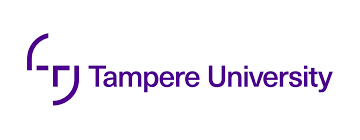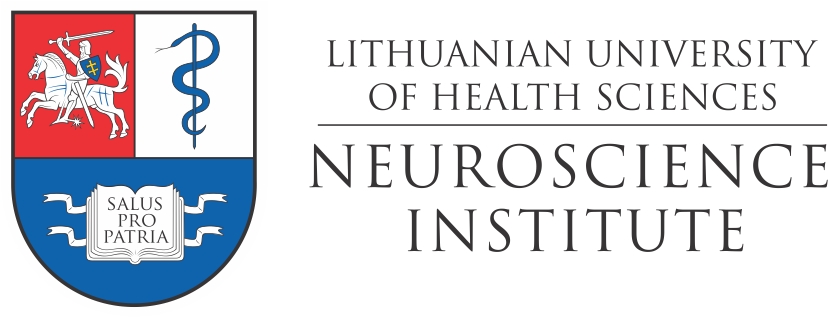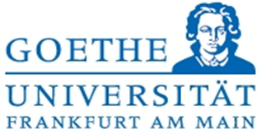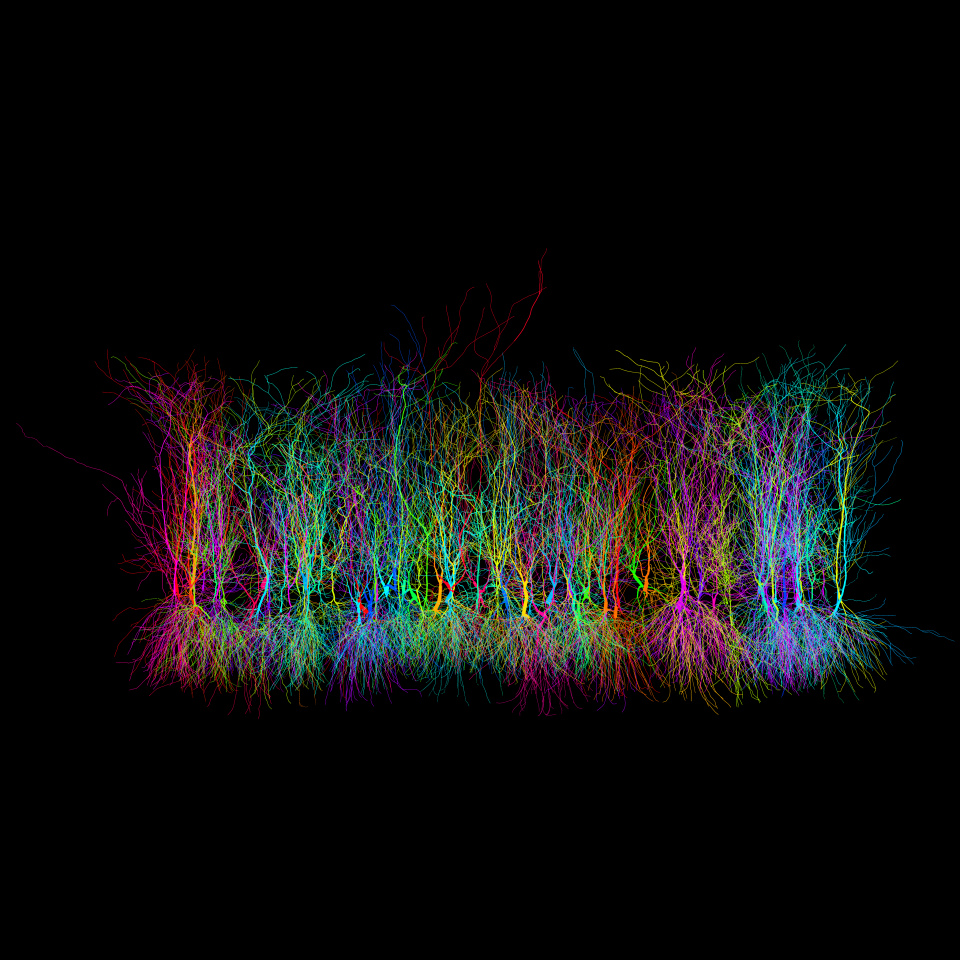Welcome



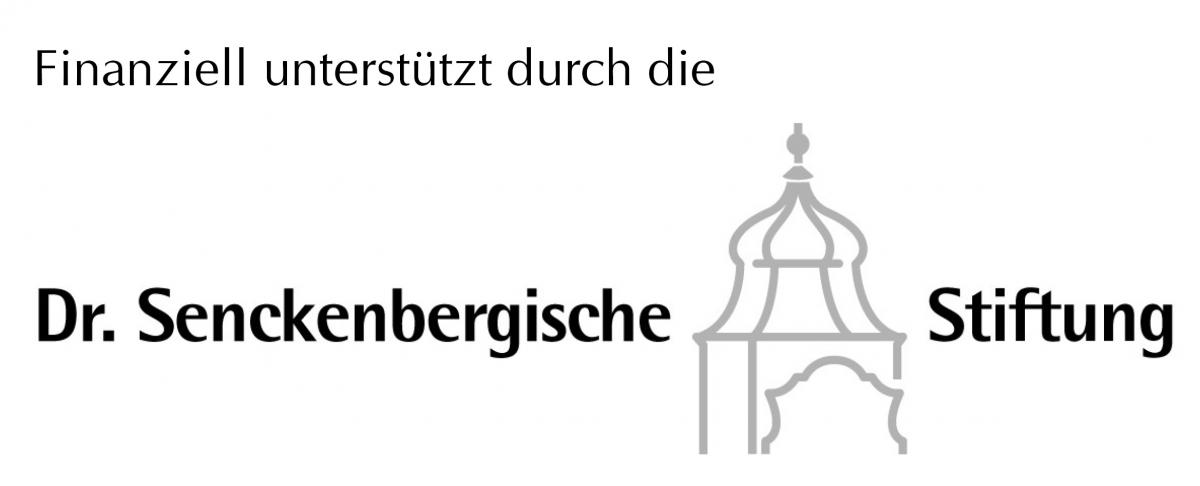
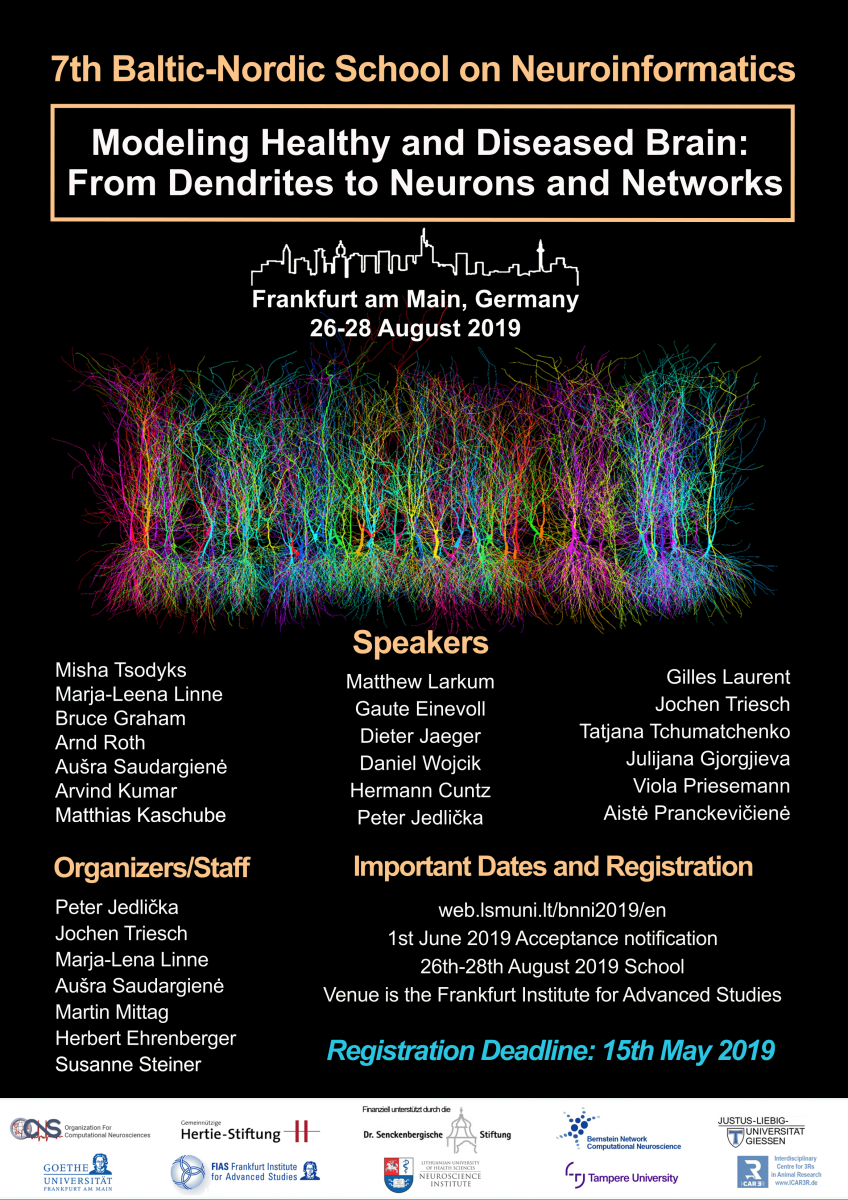
Advanced master students, doctoral students, and postdoctoral researchers are welcome to participate in the BNNI 2019 to be held at the FIAS, the Frankfurt institute for advanced studies, Frankfurt Main, Germany in August 2019.
The Course
The course is interdisciplinary and covers modeling at different levels of organization of the brain, from single neurons to microcircuits and networks. We will focus on differences between healthy and diseased brains.
Participants will learn about compartmental and morphological modeling of synapses, dendrites and neurons, as well as simulating local field potentials (LFPs).
The course combines lectures, tutorials and computer exercises. This summer school is the seventh in the series of the Baltic-Nordic Courses on Neuroinformatics (BNNI 2013 in Kaunas, Lithuania; BNNI 2014 in Tampere, Finland; BNNI 2015 in Tartu, Estonia; BNNI 2016 in Warsaw, Poland; BNNI 2017 in Kaunas, Lithuania; BNNI 2018 in Ventspils, Latvia).
- BNNI 2013 in Kaunas, Lithuania
- BNNI 2014 in Tampere, Finland
- BNNI 2015 in Tartu, Estonia
- BNNI 2016 in Warsaw, Poland
- BNNI 2017 in Kaunas, Lithuania
- BNNI 2018 in Ventspils, Latvia
Target audience
The target audience of the course will be advanced master students, doctoral students and postdoctoral researchers in biomedical and technology sciences, from medicine, biology, psychology, to mathematics, informatics, information technology, physics, chemistry, who would like to get an introduction to neuroinformatics and computational neuroscience. Some experience with programming and quantitative reasoning as well as strong interest in computational and mathematical modeling of the brain will be desirable but not necessary to benefit from the school. We will use the NEURON simulation environment for biophysical realistic models of neurons and the Matlab software package including the TREES toolbox. Desktop computers will be provided for the exercise part.
Faculty includes
Marja-Leena Linne, Faculty of Medicine and Health Technology, Tampere University, Tampere, Finland
Bruce Graham, Division of Computing Science and Mathematics, University of Stirling, U.K.
Ausra Saudargiene, Neuroscience Institute, Lithuanian University of Health Sciences, Kaunas, Lithuania
Arnd Roth, Wolfson Institute of Biomedical Research, University College London, UK
Misha Tsodyks, Department of Neurobiology, Weizmann Institute of Science, Israel
Dieter Jäger, Biology Department, Emory University, Atlanta, USA
Gaute Einevoll, Norwegian University of Life Sciences & University of Oslo, Norway
Matthew Larkum, Neurocure Cluster of Excellence, Humboldt University, Berlin, Germany
Daniel Wojcik, Nencki Institute, Warsaw, Poland
Hermann Cuntz, ESI & FIAS, Frankfurt, Germany
Peter Jedlicka, ICAR3R, Justus Liebig University Gießen, Germany
Gilles Laurent, MPI for Brain Research, Frankfurt, Germany
Jochen Triesch, FIAS, Frankfurt, Germany
Tatjana Tchumatchenko, MPI for Brain Research, Frankfurt, Germany
Julijana Gjorgjieva, MPI for Brain Research, Frankfurt, Germany
Arvind Kumar, KTH Royal Institute of Technology, Stockholm, Sweden
Aiste Pranckeviciene, Lithuanian University of Health Sciences, Kaunas, Lithuania
Viola Priesemann, MPI Göttingen, Germany
Matthias Kaschube, FIAS, Frankfurt, Germany
Organizers
Peter Jedlicka, ICAR3R, Justus Liebig University Gießen, Germany
Ausra Saudargiene, Neuroscience Institute, Lithuanian University of Health Sciences, Kaunas, Lithuania
Marja-Leena Linne, Faculty of Biomedical Sciences and Engineering, Tampere University of Technology, Tampere, Finland
Jochen Triesch, FIAS, Frankfurt, Germany
Martin Mittag, ICAR3R, Justus Liebig University Gießen, Germany
Herbert Ehrenberger, ICAR3R, Justus Liebig University Gießen, Germany
Susanne Steiner, FIAS, Frankfurt, Germany
